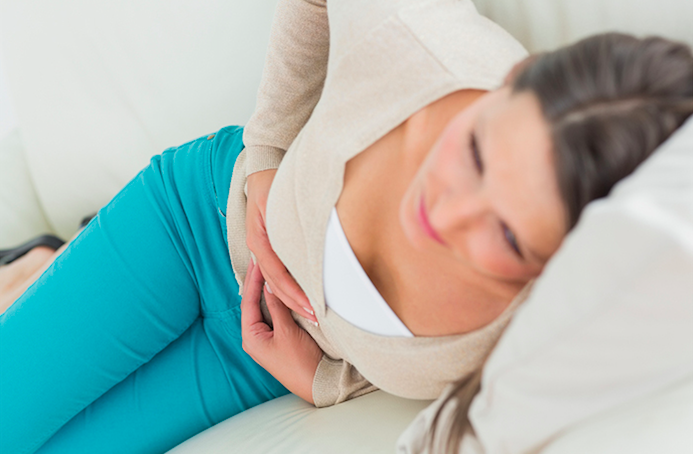Cramps, and aches, are commonly experienced in women when they reach second, or third trimester of pregnancy. It is normal at this time, and generally goes away in just a few minutes. In majority of cases, cramps are due to the changes in the blood circulation in the leg muscles, and excess stress on legs muscles.
This happens because as you are carrying your baby, your body weight increases and that exerts pressure on the blood vessels, and nerves in the leg region. If you are experiencing painful cramps, and in search of ways to get over it, then read this article.
About Leg cramps in pregnancy
In the first trimester of pregnancy, cramping is the result of the normal changes that happen during the development of the baby. It can be recognized as pulling sensations on either or both regions of the abdomen. It is a common symptom that happens in several pregnancies.
Causes of cramping during pregnancy
A minor cramping that happens occasionally is nothing to be tensed about. Cramping generally occurs due to the expansion of the uterus. It is what causes stretching of the muscles, and ligaments that provide support to it. It becomes apparent when you cough, sneeze, or modify your positions.
In the second trimester, the fundamental cause for cramping is pain in the round ligament muscle. This muscle supports the uterus. When it gets stretched, then you could feel an excruciating pain, or an ache in the lower region of abdomen.
Here are some more causes that leads to cramps in pregnancy:
- Gas
- Bloating
- Constipation
- Low calcium, or alteration in processing of calcium in the body causes cramps
Sometimes, cramping can become serious, and requires medical intervention. Causes for chronic cramping in pregnancy are:
- Ectopic pregnancy – It is a painful cramping condition when the fertilized egg attaches on the exterior lining of the uterus.
- Preeclampsia – Severe preeclampsia can lead to stabbing pain in the upper region of the abdomen.
- Preterm labor – Abdominal pain, and leg cramps also indicates preterm labor if the cervix starts to expand before 37 weeks of pregnancy.
- Miscarriage – This is the vaginal spotting that is experienced as sharp, or mild cramping. It can be the symptom of a miscarriage.
- Placental abruption – In this condition, the placenta gets separated from the uterus prior to giving birth to the baby. It is a dangerous condition and a woman experiences sharp painful cramp that doesn’t go away easily. This condition requires immediate assistance of the doctor.
How to treat Cramping?
In cases of minor cramping, you can try following things to prevent your leg cramps.
- Try to lie down, sit or modify your positions
- Try to perform relaxation exercises
- Ensure that you stay properly hydrated
- Stretch your calf muscles. Walk and raise your legs that helps in preventing the leg cramps
- A hot shower, muscle massage, or ice massage, helps in reducing the discomfort. You can even try placing a hot water bottle covered in a cloth on the painful region.
When should you seek doctors’ assistance?
- When the leg cramps take a serious form, then you need to contact your doctor urgently. Here are some of the signs of severe leg pain:
- Persistent pain
- Pain in the lower abdominal region that is accompanied by muscle contractions
- Vaginal cramping, discharge, bleeding, dizziness, and gastrointestinal symptoms
- Cramps that take place in the neck, or shoulders
- You experience tenderness, swelling, warmth, or redness, in your leg.
- You have problem in walking.
Tips to prevention leg cramps
Here are a few things that you can do to prevent cramps in your legs.
Stay active: Regular exercise helps in the prevention of leg cramps at the time of pregnancy. If you are starting with an exercise program, ensure that you consult your health care provider.
Consume a magnesium supplement: A magnesium supplement is needed to prevent leg cramps at the time of pregnancy. Make sure that your doctor prescribes you a supplement. Eating more of foods that are rich in magnesium such as whole grains, dried fruits, beans, seeds, and nuts will help.
Stay hydrated: Another important thing that you can do to prevent muscle cramps is to drink adequate amounts of water. It will prevent contractions in your muscles.
Get adequate amounts of calcium: Reduced amounts of calcium in the blood at the time of pregnancy can contribute towards leg cramps. It is important that all women, including the ones who are pregnant should recommended levels of calcium daily. It will prevent degeneration of bone density over time.
Wear the right footwear: Choose comfortable shoes that supports your body. Stay away from heels as it can cause you pain in leg muscles.
Also read: Leg Cramps During Pregnancy: How To Stop & Prevent Them
Conclusion
Cramping is one of the difficult parts of pregnancy. In most of the cases, it goes away on its own within a few minutes. If you find that the pain is persisting, then try the above remedies. If signs worsen, then seek immediate assistance of the doctor.

